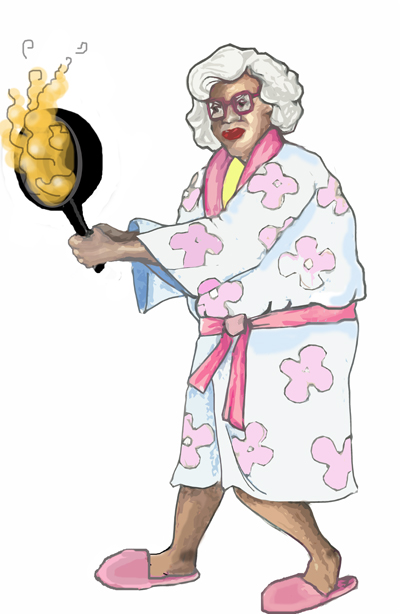Tyler Perry's Madea Misses the Mark
When Martin Lawrence made fun of black culture in his 90s television sitcom Martin and again in Big Momma’s House, we laughed at the ghetto fabulous jokes. You can’t help but crack a smile at Chris Rock’s stand-up about O.J. Simpson and black people’s cure-all obsession with “tussin’.” What I find hard to laugh at, however, is Tyler Perry’s apparently accurate depiction of typical black lives through his movies, TV shows, and plays.
Perry’s newest feature length offense, Madea’s Big Happy Family, is scheduled to release later this month—yet another opportunity for Perry to cash in on the exploitation of his heritage. He attempts to insert a deeper meaning into black culture rather than accept his role as a comedy writer and producer. Dressed in drag as Madea, Perry plays a family matriarch with a smart mouth and powerful fist. She’s loud, she’s overweight, and she threatens to fight anyone who crosses her. It might be funnier if she wasn’t passing off every black stereotype as God’s gospel.
I can’t imagine a self-respecting black person describing Perry’s portrayal of African-Americans as anything but ludicrous. Perry can drive the guiding points of faith, family, and friendship home without injecting them into storylines where Madea threatens to “whoop someone’s ass” or help a woman get rid of her abusive husband by throwing a hot pan of grits in his face.
In 2009, black filmmaker Spike Lee compared Perry’s films to Amos n’ Andy, a 20s radio show depicting the lives of moronic black farmers. He condemned fans who pay for tickets to Perry’s movies and plays because doing so encourages the buffoonery. Perry’s movies do play an important role in Hollywood by keeping black actors on-screen and employed, but black actors as black characters in black movies furthers the idea that blacks can only play designated black parts and cannot intersect with the mainstream film world.
Tyler Perry movies suffice for an empty chuckle, but they fall short of representing a race. If his next movie involves something more than a broken family, Madea screaming fighting words, and black people oddly living in a black-only world, Perry might find respect from a wider audience. You know, other than his best bud Oprah.

